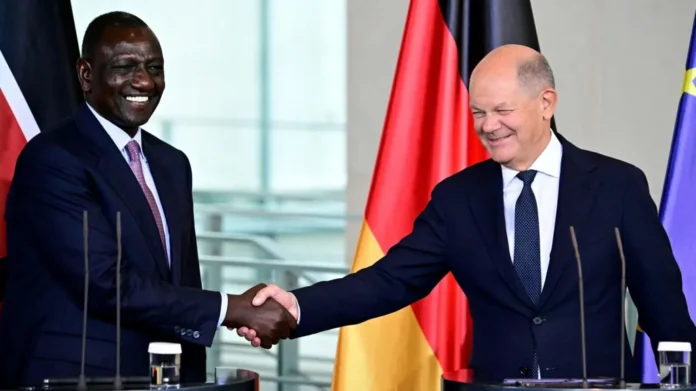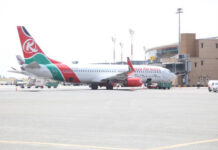The governments of the Republic of Kenya and the Federal Republic of Germany signed a pioneering non-quota-based migration and mobility agreement on September 13, 2024.
This landmark agreement will streamline cooperation regarding labor mobility, apprenticeship programs, and the welfare of workers, aligning the skills of Kenyan professionals with the demands of the German labor market.
The labour deal was signed in Berlin by Germany’s Chancellor Olaf Scholz and Kenya’s President William Ruto.
Germany agreed to ease some of its immigration laws to enable Kenyans to find employment in Europe’s biggest economy.
However, controversy arose following a BBC report (which has already been deleted) claiming that Kenya had received 250,000 job opportunities in Germany.
In response, the German government swiftly rejected these claims, clarifying that the agreement does not guarantee specific job placements. The German government stated via Twitter:
“This Information is clearly false. The agreement between Germany and Kenya does not include any numbers or quotas of skilled workers who will have the opportunity to work in Germany. All applicants must fulfil the strict requirements of the German Skilled Immigration Act.”
Immigration is a huge issue in Germany at the moment, following the rise in popularity of the far-right anti-immigration party, Alternative for Germany (AfD).
Successive governments in Berlin have allowed relatively large numbers of asylum seekers to settle in the country in recent years.
Germany took in more than one million people, mostly fleeing war in countries such as Syria, during the 2015-2016 migrant crisis, and has received 1.2 million Ukrainians since Russia’s full-scale invasion began in February 2022.
The deal also includes provisions for the readmission and return of citizens between the two nations.
It spells out guidelines to prevent and fight against labour exploitation, forced labour and human trafficking.
While welcoming five Kenyan drivers in Flensburg on Thursday, Schleswig-Holstein’s Transport Minister Claus Ruhe Madsen said Germany was in need of hard-working hands and clever minds.
The drivers are the first batch of Kenyan workers, who will be trained by the Aktiv bus company in a pilot project, hoping to get a job in Germany.
Doctors, nurses and teachers are among those expected to take part in the programme.
The International Labour Organisation (ILO) said the deal was expected to significantly increase access to decent foreign jobs for Kenyan workers in Germany and address labour shortages in Germany.












![[Full List] – Safaricom, Absa and Britam Named Among Top Employers for 2026](https://uzalendonews.co.ke/wp-content/uploads/2026/01/Screenshot-2026-01-15-190157-218x150.png)






